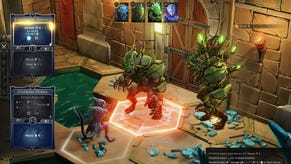EA claims First Amendment protection for Battlefield 3
Publisher issues complaint against Bell Helicopters after discussions break down
Electronic Arts has issued an action claiming First Amendment protection for its use of real-world military helicopters in Battlefield 3.
According to legal documents obtained by Kotaku, EA was contacted on December 21, 2011 by lawyers representing Textron, a US conglomerate that owns the military hardware company Bell Helicopter.
Textron demanded that three models depicting Bell aircraft be removed from Battlefield 3. However, after failing to reach an understanding privately, EA submitted an action to the federal court of Northern California last Friday.
The document states that, "the parties have been unable to resolve their dispute. EA therefore has a reasonable and strong apprehension that it will soon face a trademark and/or trade dress action from Textron."
EA believes that its use of the AH-1Z Viper, UH-1Y and V-22 Osprey helicopters is, "protected by the First Amendment and the doctrine of nominative fair use," and notes that, "the Bell-manufactured helicopters are not highlighted or given greater prominence than any of the other vehicles within the game."
"The Bell-manufactured helicopters depicted in Battlefield 3 are just a few of countless creative visual, audio, plot and programming elements that make up EA's expressive work, a first-person military combat simulation."
EA's claim is strengthened by June 2011's landmark ruling that gave games the same First Amendment rights as film and literature. The US Supreme Court voted 7-2 against a motion to reinstate a law concerning the sale of violent video games to minors, and introduced new labelling laws and punitive fines for retailers.
Since then, a lawsuit between EA and Rutgers University over the use of quarterback Ryan Hart's likeness was dismissed after a judge ruled that EA's First Amendment rights outweighed Hart's rights to control his own image.
"Millions of dollars are being made, and he's not getting his part of that pot," Hart's lawyer, Tim McIlwain, said at the time. "How is this allowed to happen?"








